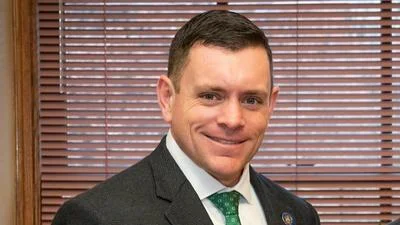Badger Institute issued the following announcement on Nov. 23
Research indicates a correlation between proper dental hygiene, including regular dental visits, and a lower risk of serious COVID infection and complications, according to a recent study out of Cairo University. The report confirms what other international research has found – that good oral health could be associated with the prevention of serious infection and the hastened recovery from COVID-19.
This news is particularly relevant in Wisconsin, which has one of the lowest rates of dental care in the nation. More than 90% of Wisconsin’s 72 counties have at least one geographical area designated as Dental Care Health Provider Shortage Areas by the federal government.
Legislation that would address these shortages by allowing dental therapists to practice in Wisconsin unanimously passed the State Senate in April, and a companion bill enjoys broad bipartisan support in the Assembly. However, Speaker Robin Vos assigned the measure to a committee that does not consider legislation.
Regular dental visits could help in “preventing or decreasing the severity of COVID-19 disease," said Dr. Ahmed Mustafa Basuoni, cardiology consultant at Cairo University and lead author of the Egyptian study, in a press release.
An international study led by researchers at McGill University in Montreal and published in April in the Journal of Clinical Periodontology Researchers reported similar findings. According to the report, COVID patients with gum disease were:
· 3.5 times more likely to be admitted to the intensive care unit
· 4.5 times more likely to need a ventilator, and
· 8.8 times more likely to die than those without gum disease.
“Oral health is a critical component of overall health and well-being,” said Greg Theis (DDS, MBA), vice president of Dental Services at Delta Dental of Wisconsin. “Evidence suggests the correlation between those individuals with COVID-19 who have severe gum disease appeared at greater risk of more severe COVID-19.”
Delta Dental of Wisconsin is among dozens of organizations that support the effort to allow dental therapists to practice in the state. Dental therapists, who now practice in Minnesota, Michigan and 10 other states, focus on the type of care that can help prevent and mitigate gum disease – and by extension the possible effects of other
diseases – for patients. They also focus on those at highest risk: those who currently lack access to routine care.
Those most impacted by these shortages are children in families that receive Medicaid, rural residents, people with disabilities, veterans and lower-income populations. Some 20% of Wisconsin residents — more than 1.2 million people — live in an area experiencing a shortage of dental health professionals.
“Wisconsin has been and continues to be in an oral health care crisis,” said State Sen. Mary Felzkowski, author of the legislation. “By passing dental therapy licensure, dentists could practice at the top of their scope, dental offices could see more Medicaid patients, fewer of our neighbors would be forced to visit the emergency department for oral health issues, and our students and workforce of all ages would have the ability to attend school and work without the added pain resulting from lack of access to dental care.”
Felzkowski said she was pleased that “every single State Senator set aside politics to do the right thing,” but expressed disappointment by the lack of movement in the State Assembly – despite a similar level of bipartisan support for the legislation.
“The bill currently lays untouched in the Committee on Assembly Organization, chaired by Speaker Vos,” said Felzkowski. “We are making an earnest plea to all 60 organizations in our dental therapy coalition to reach out to committee leadership and impress upon them how impactful this legislation would be for the state of Wisconsin.”
Vos’ office did not respond to a request for comment.
Dental shortage areas tend to cluster in two specific regions: urban neighborhoods and rural communities. These regions often share common traits, including higher proportions of low-income residents, less access to private insurance, heavy dependence on Medicaid, limited transportation options and a shortage of providers.
“It’s basically a supply-demand issue, driven largely by the fact that the reimbursements are not attracting enough resources for the community,” says George Hinton, CEO of Milwaukee’s Social Development Commission, an organization that works on a variety of poverty-related issues including access to health and dental care.
In many low-income areas, dental care is provided by dental students. The result is a revolving door of service providers that fails to address long-term patient needs. Funding for these programs often comes through Federally Qualified Health Centers (FQHCs), which compete for dentists and provide funding at levels that might not attract many dentists but could be feasible for dental therapists.
One effort to provide services to underserved Wisconsin communities is the Seal-A-Smile program. A collaborative effort between the Children’s Health Alliance of Wisconsin, the Wisconsin Department of Health Services and Delta Dental of Wisconsin, this program dispatches 50 to 100 dental hygienists to provide preventative oral health services to more than 70,000 children in 1,100 schools. Kids, however, often have greater needs than Seal-A-Smile can provide.
“Roughly 40% of kids need additional follow-up care,” says Matt Crespin, associate director of the Children’s Health Alliance of Wisconsin. “Coordinating that with dentists can be challenging. By employing dental therapists, we can provide much of the wide range of care that may be needed.” Minnesota was the first state to approve dental therapy to address shortage issues, approving the practice over a decade ago. Patients in the Gopher State now have better access to care as a result, and dentists can’t hire graduating therapists fast enough. Some private practices are even offering signing bonuses as part of their recruitment efforts.
Drew Christiansen, a Tomahawk, Wisconsin, native is one of them. He serves as an advanced dental therapist in the Twin Cities. Growing up, he drew inspiration from his own dentist, who served a rural patient base that frequently lacked the ability to pay and faced challenges getting get to his office.
“I got into dental therapy because I wanted to work with the underserved, especially children,” he said.
Christiansen works as one of three DTs at a private practice in Lakeville, Minnesota, while also serving as a clinical assistant professor at the University of Minnesota’s School of Dentistry in Minneapolis, a program from which he graduated in 2013. He educates and trains a burgeoning class of new dental therapists who are finding work in a wider range of states.
“We have a lot of dental therapist applicants from Wisconsin,” he said. “There’s no question many would love to go back and practice there.”
Original source can be found here.






 Alerts Sign-up
Alerts Sign-up